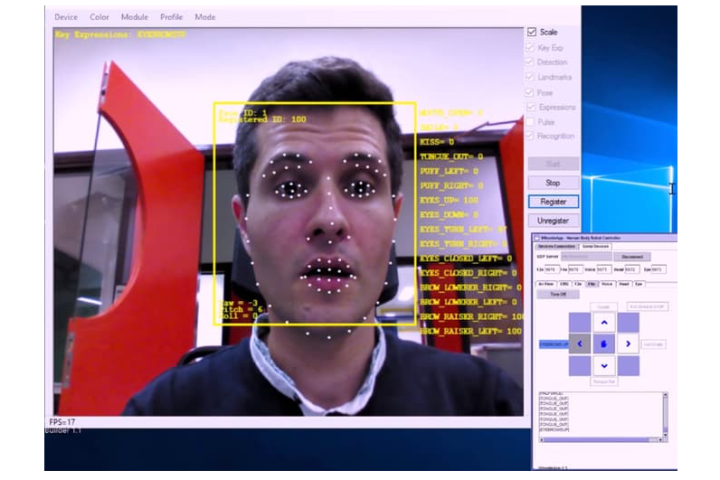
The team began its work on the wheelchair in 2011 by exploring the feasibility of using brain-computer-interface technology to bridge the gap between the brain and the wheelchair. After studying the problem on paper, the team decided to work first on controlling the wheelchair using external cues instead of the more complicated brain-control interface. Researchers built their first prototype using a standard motorized wheelchair that was modified using sensors and cameras. The team first removed the joystick typically used to control the movement of the chair and replaced it with a suite of sensors that could both detect variations in floor surface and measure the distance of objects and walls surrounding the wheelchair.
Once the chair hardware modifications were complete, the researchers designed a control interface that used a 3D camera with RealSense technology. Similar to Microsoft Kinect for the Xbox, RealSense receives input from a depth-sensing camera that monitors facial and body expressions. These expressions are then translated by the system into commands to control the wheelchair.
“The camera can identify more than 70 facial points around the mouth, nose and eyes. By moving these points, it is possible to get simple commands, such as forward, backward, left or right and, most importantly, stop,” says researcher Eleri Cardozo.
As an added benefit, the wheelchair also is equipped with Wi-Fi and a remote control feature that allows a caregiver to control the wheelchair over an internet connection. When the wheelchair user gets tired, the caregiver can take over control of the chair and guide the occupant to a safe spot. After successfully receiving additional funding, the team now is working on adding BCI technology to the wheelchair setup. The team plans to eventually sell its wheelchair commercially in Brazil for less than R$14,000, or $4,000 U.S.



